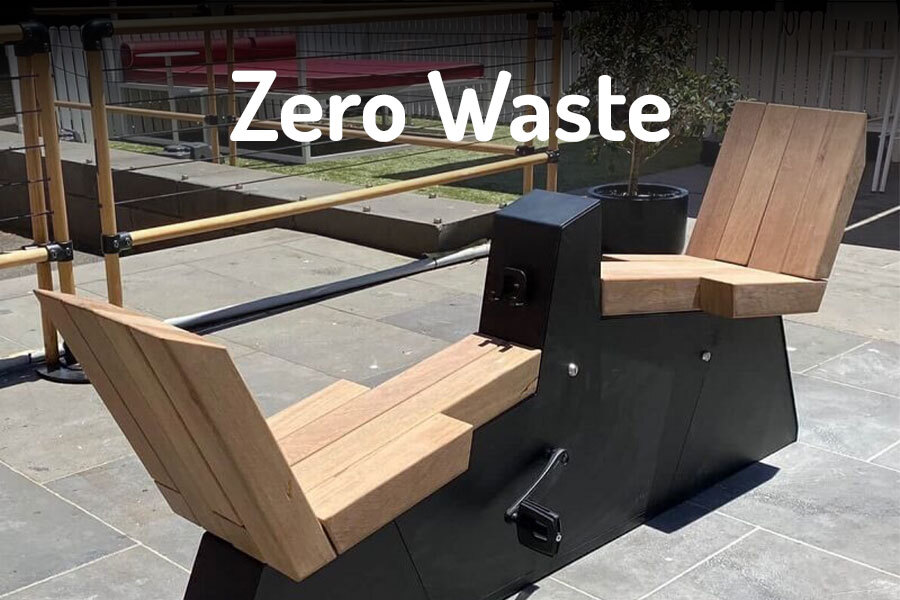Table of Contents
In today’s eco-conscious world, hosting zero waste events is more than a trend, it’s a statement of your commitment to environmental sustainability. A zero waste event aims to minimise waste by ensuring that all materials used are either reusable, recyclable, or compostable. By incorporating innovative technology and careful planning, you can transform your event into a model of sustainability.
The Benefits of Zero Waste Events
Zero waste events offer numerous benefits beyond reducing environmental impact. By adopting best practices in waste management, you can:
1. Enhance Your Brand Image
Incorporating sustainable practices into your event benefits the environment and also improves your brand image. Demonstrating a commitment to sustainability can boost your reputation among eco-conscious attendees, clients, and stakeholders. Hosting zero-waste events shows that your organisation is forward-thinking and socially responsible, which resonates with today’s environmentally aware audience.
2. Reduce Costs
While sustainable materials and technology may seem like an upfront investment, adopting waste reduction strategies can lead to significant cost savings. By reducing reliance on disposable products and cutting down on waste disposal fees, you can save money while creating a more eco-friendly event.
3. Engage Attendees
Sustainability is no longer just a corporate buzzword, it’s something people care about deeply. By hosting a zero-waste event, you engage attendees in a meaningful way, inviting them to be part of a greener future. Interactive elements, such as using renewable energy sources or offering waste stations, can create a memorable and impactful experience for your audience.
4. Minimise Environmental Impact
The most obvious benefit of a zero waste event is reducing your environmental footprint. By diverting waste from landfills and decreasing reliance on non-renewable resources, you actively contribute to the health of the planet. This ensures that your event doesn’t leave harmful by-products but rather contributes to long-term environmental sustainability.
Key Strategies for Zero Waste Event Planning
Planning a zero-waste event requires thoughtful preparation, careful execution, and a focus on post-event analysis. Below are key strategies to ensure your event achieves its zero-waste goals.
1. Pre-Event Planning
Effective zero-waste event planning starts well before the day of the event. Here’s how to prepare: Conduct a Waste Audit: Analyse past events to identify common waste sources and develop strategies to address them. Select a Sustainable Venue: Choose a venue that supports zero waste sources and develop strategies to address them. Source Eco-Friendly Materials: Opt for reusable or compostable materials for all event needs. This includes service ware, decorations, and promotional items.
2. Incorporate Innovative Technology
Enhance your event’s sustainability by integrating cutting-edge technologies: Smart Solar Benches: These benches harness solar energy to power devices and offer a unique, eco-friendly feature for your event. Smart Solar benches provide charging stations while promoting the use of renewable energy. WeWatt Bikes: Incorporate WeWatt bikes to generate energy from pedalling. Attendees can power lights or charge devices while engaging in physical activity, turning exercise into a sustainable energy source. Energy Floors: Utilise kinetic energy floors that capture the energy from foot traffic to power event lighting or digital displays. This technology transforms the movement of your guests into a renewable energy source.
3. During the Event
Implement strategies on the day of the event to maintain zero waste standards: Waste Stations: Set up clearly labelled waste stations for recycling, composting, and general waste. Ensure that staff are available to guide guests on proper disposal. Reusable Service Ware: Use reusable or compostable service ware to minimise single-use plastics. Provide incentives for guests who bring their own reusable containers. Digital Alternatives: Minimise paper use by offering digital tickets, programs, and signage.
4. Post-Event Evaluation
Evaluate your event’s waste management success and areas for improvement: Track Waste Diversion: Use methods and worksheets to measure the amount of waste diverted from landfills. This will help assess the effectiveness of your strategies. Gather Feedback: Collect feedback from attendees and staff to identify successes and opportunities for improvement. Review Costs: Analyse the cost-effectiveness of your waste reduction efforts to inform future event planning.
Tools and Resources
To streamline your zero-waste event planning, utilise the following tools and resources: Recycling and Composting Information: Access specific guidelines for your area, such as Sydney/Melbourne, to ensure compliance with local regulations. Vendor and Budget Information: Find suppliers for reusable and compostable service ware and manage your budget effectively. Event Planning Checklist: Use a comprehensive digital checklist to stay organised and ensure all zero waste aspects are covered.
Conclusion
Adopting zero waste practices contributes to a more sustainable future. By incorporating technologies like Smart Solar Benches, WeWatt Bikes, and Energy Floors, you can create an unforgettable, eco-friendly experience that aligns with today’s environmental values. Through careful pre-event planning, effective waste management strategies, and post-event evaluations, you can ensure that you leave a positive, lasting impact on both your audience and the planet. Start planning your zero waste event today and position your brand as a leader in sustainability while making a tangible difference in the world.


Recent Comments